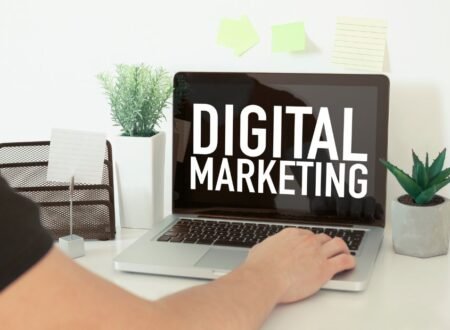The digital marketing trends is transitioning rapidly and it is all with the help of technology, consumer behavior and preference, and the need for personalized experience. For businesses to continue staying relevant and resonate with those they serve, these trends are critical to understand as we head to 2025. This article will discuss the fundamental trends influencing digital marketing by 2025, including, but not limited to, AI-fueled customizations, immersive innovations, semantic search, and privacy-centric marketing strategies.
Introduction to Digital Marketing Trends
Digital marketing is now the fastest-growing media channel with a predicted reach of $513 billion and share of 62.7% of global ad spend by 20255. Perhaps, all this is a testament to the growing importance of digital marketing channels, as businesses become increasingly competitive for the limited attention of consumers. So it becomes essential for the businesses to be agile and be in step with the trends that emerging.
1. AI-Powered Personalization:
With the capability to create hyper-personalized experiences at scale, Artificial Intelligence (AI) is ruling the roost by revolutionizing marketing. From AI automated recommendations to instant response chatbots, companies are harnessing the power of AI to optimize customer interactions. An AI algorithm analyzes tons of data to predict consumer behavior and customize the marketing strategy to suit these predictions.
Key Applications of AI in Personalization:
- Predictive Analytics: Using machine learning algorithms to anticipate consumer behavior and customize tactics.
- Recommendation Systems: Generating tailored content and product suggestions according to user interests and actions.
- Chatbots and Virtual Assistants: Providing real-time support for customer service.
2. Immersive Technologies: AR and VR
Immersive tech such as augmented reality (AR) and virtual reality (VR) are revolutionizing the digital marketing trends with interactive and engaging experiences. These technologies offer brands the opportunity to engage consumers in a deeper, more memorable manner with their brand business24.
Benefits of Immersive Technologies:
- Does the Content Stand Out: AR and VR experiences make a more memorable experience for the user’s engagement and brand recall.
- Brand Storytelling: These technologies allow brands to create story in innovative, interactive formats.
- Differentiator: Early adopters can ensure a first mover advantage that allows them to stand out.
3. Voice Search and Conversational Marketing
With more consumers using voice assistants such as Siri, Alexa, and Google Assistant, voice search is becoming more vital to the search engines. Voice search optimization is about generating content that engages users in conversations and provides answers to particular questions, positively affecting users and search24.
Strategies for Voice Search Optimization:
- Conversational Content: Make your content sound like how people speak.
- Long-Tail Keywords: Focus on longer, specific phrases that fit voice queries.
- Voice Search Optimization: In voice search results, aim for featured snippets to help increase visibility..
4. Privacy-First Marketing & First-Party Data
In the wake of new privacy laws and regulations — not to mention the impending phase-out of third-party cookies — marketers are moving in the direction of privacy-first strategies. The future will see ongoing efforts to establish and maintain consumer trust, particularly with respect to compliance (discussed in section 3.5) and the requirement to collect zero-party data —information that customers share willingly.
Strategies for Privacy-First Marketing:
- Data Collection: Interactive quizzes, surveys, and preference centers help in gathering the data
- Transparency: Be open about the use and protection of data.
- Cookieless Tracking: In this regard, new technologies must be adopted, which are designed in such a way that consumer privacy is honored.
5. The Rise of Niche Communities
Social platforms shallow consumers are converting into private groups or topical communities. In order to remain relevant and create strong connections with their target audiences1, brands need to interact in meaningful, platform-targeted ways.
Strategies for Engaging with Niche Communities:
- Platform-Specific Content: Tailor content to resonate with each community.
- Real Engagement: Get involved and real with the community.
- Offer platform for influential voices: Have healthy influencers promoting healthy products for healthy prices
6. Agility as a Competitive Advantage
The world of marketing is rapidly changing, and the ability to pivot is making or breaking businesses! Brands that leverage predictive analytics, adopt an AI-first thinking and adapt at a fast pace — will leapfrog competitors and deliver improved outputs.
Strategies for Enhancing Agility:
- Predictive Analytics: Leverage AI to predict market trends and consumer behavior.
- Keep Yourself Updated: Be aware of current marketing tools and trends.
- Agile Approaches: Ensure that pivoting marketing strategies in line with real-time data insights is a possibility.
7. Omnichannel Marketing Integration
Seamlessly connecting online and offline touchpoints remains a priority. Successful brands will leverage integrated omnichannel strategies to provide consistent and engaging customer journeys across all platforms.
Benefits of Omnichannel Marketing:
- Delivering a Seamless Brand Experience: Provide a consistent brand message and experience across all channels.
- Improved Interaction: Maintain contact with customers across various touch points and provide them with additional opportunities to develop brand loyalty.
- Data Integration: Leverage data from various channels to optimise marketing strategies and enhance customer insights.
Conclusion
To sail through the digital marketing trends in 2025, you need to know emerging trends and technologies. Businesses can stay competitive and establish strong relationships with their targeted audiences by leveraging AI-driven personalization, immersive technologies, voice search optimization, privacy-first marketing, and agility. With a rapidly changing digital marketing trends , staying current — and flexible — will be essential to maintaining success in the evolving digital marketing space


